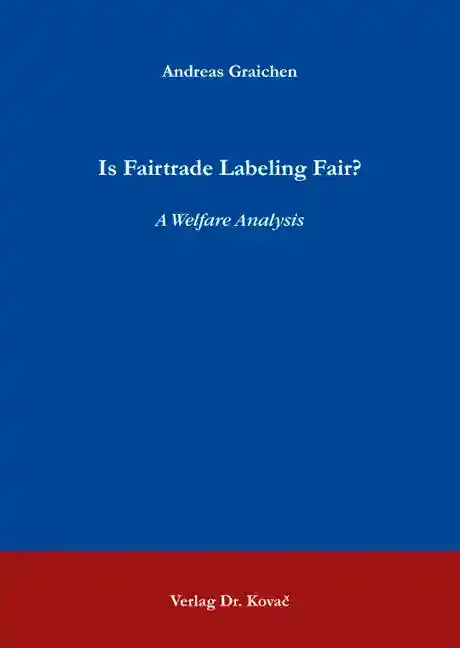Andreas GraichenIs Fairtrade Labeling Fair?
A Welfare Analysis
Schriftenreihe volkswirtschaftliche Forschungsergebnisse, Band 149
Hamburg 2009, 186 Seiten
ISBN 978-3-8300-4429-1 (Print)
ISBN 978-3-339-04429-7 (eBook)
Zum Inhalt
The discussion about the effectiveness of fairtrade labeling in terms of economic efficiency and as a measure for alleviating poverty goes on since several years. While the fairtrade movement claims that it is necessary to pay a „fair“ price to the producers to allow them to live a decent life, free-market apologists argue that that fairtrade is not really fair but principally makes non-fairtrade producers poorer. Moreover it is stated that fairtrade is an inefficient way to transfer money to the south because only a small part of the fairtrade premium arrives at the farmer. However, economic literature dealing with the impacts of fairtrade is rare and it is therefore difficult to follow or reject those arguments.
This work contributes to that strand of literature to increase the basis for an objective evaluation of the fairtrade system. The model which underlies the analysis concentrates on typical fairtrade products like coffee or bananas which are produced by lots of small-scale farmers and which are bought by a small number of firms. For this purpose, a model incorporating monopsony power, a duopoly (Bertrand competition) and a warm glow of giving effect is developed to evaluate the welfare effects of a fairtrade system in which a certain minimum price is chosen by the fairtrade labeling organization. In this model framework it is assessed how the fairtrade systems general parameters influence the welfare outcomes of the fairtrade system and if a fairtrade system is superior to direct transfers.
